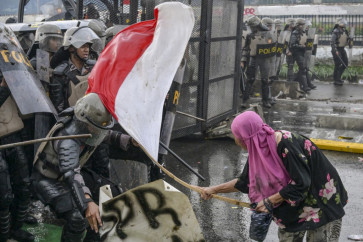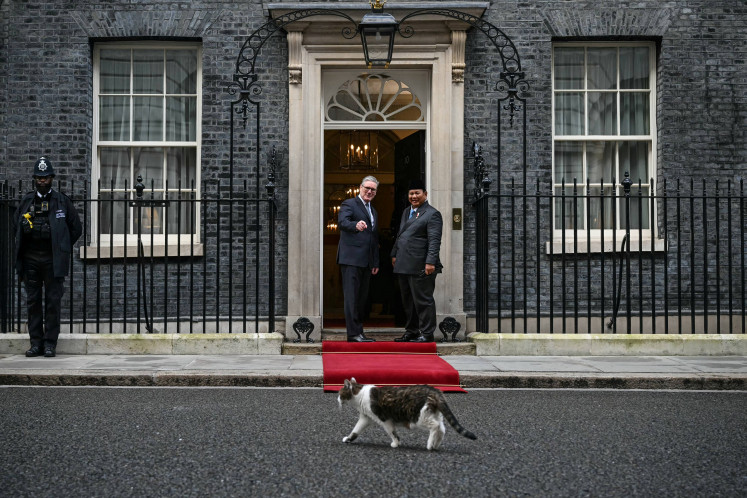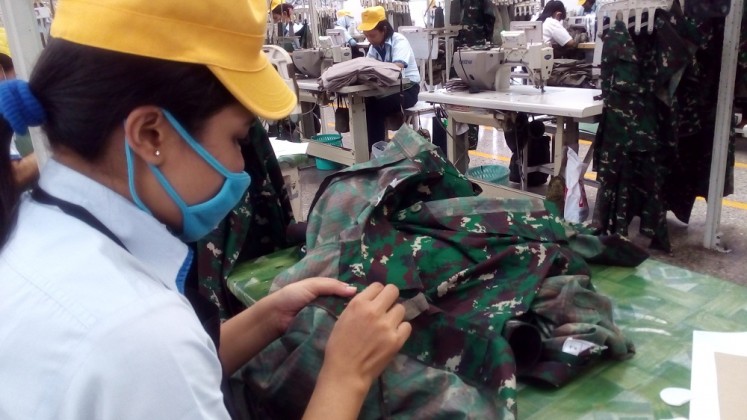Popular Reads
Top Results
Can't find what you're looking for?
View all search resultsPopular Reads
Top Results
Can't find what you're looking for?
View all search resultsEditorial: The sharp turnaround
After the revelation of a US$128
Change text size
Gift Premium Articles
to Anyone
A
fter the revelation of a US$128.7 million trade deficit in July, the first over the past year, many dreaded that the balance of Indonesia’s foreign trade would continue to worsen in the coming months because of the steady erosion of competitiveness of the country’s manufactured goods.
But our foreign trade balance made a sharp turnaround in August with a trade surplus of $149 million, derived from a historical monthly export record of $13.71 billion and imports of $12.22 billion.
The composition of exports, based on broad categories as defined in the harmonized systems of commodity classifications, shows an economically healthy trend with manufactured goods accounting for 75 percent, agricultural commodities for a mere 3.65 percent, and minerals for 21.35 percent.
The stronger export performance reflects the stronger economic recovery in developed countries and persistently robust growth in Asia. That should be welcomed as a confidence-building boost to make external demand a stronger driver for our economic growth, besides domestic private demand and investment.
However, reading deeper into the trade figures released by the Central Statistics Agency (BPS) last Friday, we should not be lulled into self congratulation, let alone complacency, because this export growth will not be sustainable and is prone to wild price fluctuations.
First of all, the increase in exports was largely a result of higher prices of agricultural commodities, notably coffee, cocoa and crude palm oil (CPO) — which almost reached $1,000 per metric ton. CPO alone accounted for almost 17 percent of the total non-oil exports in August. Indonesia, already the world’s largest CPO producer, expects to export around 15 million of its 20 million tons output this year.
The second-largest contributor was the sharp increase in coal exports, accounting for $1.6 billion or 14 percent of the total. Indonesia, the world’s largest exporter of sea-borne thermal coal, is projected to export about 200 million tons this year — mostly to China, India and several other Asian countries.
Questions remain as to how long such a high coal export growth can be maintained without severely damaging the environments of East and South Kalimantan and West and South Sumatra.
Even though 75 percent of the exports comprised manufactured goods, the impressive export figures in August cannot be claimed as a result of improved competitiveness of our manufacturing industries because quite a large portion of what are defined as manufactured goods have only a very low amount of value added.
Take for example CPO. True, this commodity can be classified as a manufactured product, because it is refined from fresh fruit bunches. But this process takes place at a very low rung of the value chain.
Indonesia could get a much higher value from this commodity if CPO could be processed locally further into oleo-chemicals or fatty acids or glycerol and cosmetics products.
The government has realized the importance of adding as much value as possible to its agricultural commodities and minerals. The economic action plans of the government during its first 100 days in office included the opening of CPO-based industry clusters in North Sumatra, Riau and East Kalimantan.
Single-commodity-based industry clusters can indeed help strengthen competitiveness because they generate localized economies arising from specialization and focus that extends to suppliers, labor markets, infrastructure and logistics.
But nothing concrete has happened since chief economics minister Hatta Rajasa launched these projects early this year, due to the absence of clear-cut policies and basic infrastructure.
Likewise, crumb rubber, cocoa and copper concentrate, three other major export commodities, also have a very low amount of value added locally and the processing they receive in Indonesia is only at the low end of the value chain.
These low-value-added commodities are vulnerable to price fluctuations in the international market and their production does not generate many jobs.










